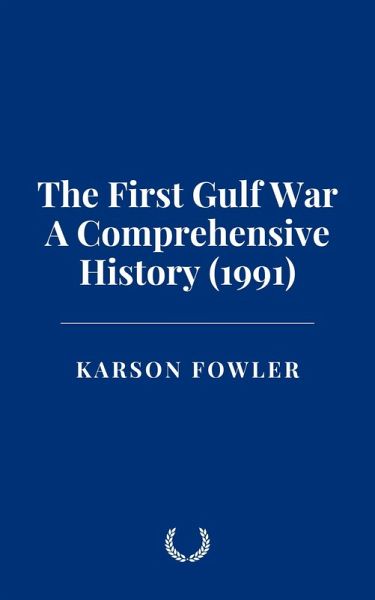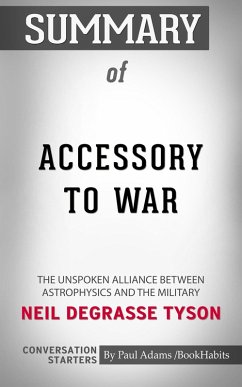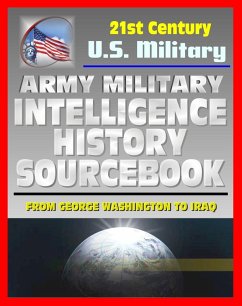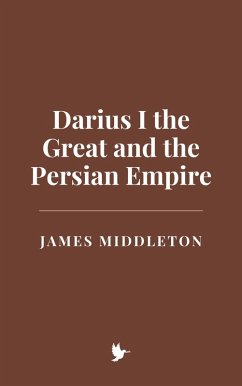
The First Gulf War: A Comprehensive History (1991) (eBook, ePUB)

PAYBACK Punkte
0 °P sammeln!
The First Gulf War (1990-1991), also known as Operation Desert Storm, was a pivotal moment in modern history, reshaping the geopolitical landscape of the Middle East and the global order. This book examines the complex series of events, both before and after the war, that led to Iraq's invasion of Kuwait, the subsequent international response, and the long-lasting consequences of the conflict. Drawing on a variety of primary sources, historical analyses, and commentary, the book provides a comprehensive exploration of the war's military, economic, political, and humanitarian impacts.The narrat...
The First Gulf War (1990-1991), also known as Operation Desert Storm, was a pivotal moment in modern history, reshaping the geopolitical landscape of the Middle East and the global order. This book examines the complex series of events, both before and after the war, that led to Iraq's invasion of Kuwait, the subsequent international response, and the long-lasting consequences of the conflict. Drawing on a variety of primary sources, historical analyses, and commentary, the book provides a comprehensive exploration of the war's military, economic, political, and humanitarian impacts.
The narrative begins with an in-depth analysis of the causes of the Gulf War, including the territorial and political tensions between Iraq and Kuwait, the broader regional dynamics, and the role of the superpowers in shaping the conflict. It continues by exploring the strategy, technological innovations, and military operations that defined the U.S.-led coalition's response, which culminated in a swift and decisive military victory. The book examines how the war, while successful in its immediate objectives, created long-term instability, particularly for Iraq, which endured economic sanctions, political repression, and regional isolation. The consequences of the war on global oil markets, regional alliances, and the balance of power in the Middle East are explored, as well as the limitations of international law and the United Nations in addressing the underlying issues of the conflict.
The humanitarian crisis that unfolded, both during and after the war, is examined in detail, highlighting the suffering of civilians, particularly in Iraq, and the moral and ethical challenges posed by the sanctions regime. The book analyzes the role of the United States and its allies in shaping post-war policy, their failure to address internal uprisings in Iraq, and the political ramifications of leaving Saddam Hussein in power. The global impact of the war, from the rise of extremist groups in the region to the growing U.S. military presence in the Gulf, is examined, providing a foundation for understanding the lead-up to the Iraq War of 2003.
In the final chapters, the book assesses the long-term legacy of the Gulf War, arguing that the failure to resolve Iraq's internal political issues and the broader instability of the Middle East ultimately contributed to the 2003 invasion of Iraq. The book concludes by reflecting on the lessons learned from the Gulf War, emphasizing the complexities of military intervention, international diplomacy, and the challenge of achieving lasting peace in a region marked by deep political, economic, and ideological divisions. Through a critical analysis of the Gulf War's aftermath, the book provides insights into the broader dynamics of U.S. foreign policy in the Middle East and the enduring challenges of international conflict resolution.
The narrative begins with an in-depth analysis of the causes of the Gulf War, including the territorial and political tensions between Iraq and Kuwait, the broader regional dynamics, and the role of the superpowers in shaping the conflict. It continues by exploring the strategy, technological innovations, and military operations that defined the U.S.-led coalition's response, which culminated in a swift and decisive military victory. The book examines how the war, while successful in its immediate objectives, created long-term instability, particularly for Iraq, which endured economic sanctions, political repression, and regional isolation. The consequences of the war on global oil markets, regional alliances, and the balance of power in the Middle East are explored, as well as the limitations of international law and the United Nations in addressing the underlying issues of the conflict.
The humanitarian crisis that unfolded, both during and after the war, is examined in detail, highlighting the suffering of civilians, particularly in Iraq, and the moral and ethical challenges posed by the sanctions regime. The book analyzes the role of the United States and its allies in shaping post-war policy, their failure to address internal uprisings in Iraq, and the political ramifications of leaving Saddam Hussein in power. The global impact of the war, from the rise of extremist groups in the region to the growing U.S. military presence in the Gulf, is examined, providing a foundation for understanding the lead-up to the Iraq War of 2003.
In the final chapters, the book assesses the long-term legacy of the Gulf War, arguing that the failure to resolve Iraq's internal political issues and the broader instability of the Middle East ultimately contributed to the 2003 invasion of Iraq. The book concludes by reflecting on the lessons learned from the Gulf War, emphasizing the complexities of military intervention, international diplomacy, and the challenge of achieving lasting peace in a region marked by deep political, economic, and ideological divisions. Through a critical analysis of the Gulf War's aftermath, the book provides insights into the broader dynamics of U.S. foreign policy in the Middle East and the enduring challenges of international conflict resolution.
Dieser Download kann aus rechtlichen Gründen nur mit Rechnungsadresse in A, B, CY, CZ, D, DK, EW, E, FIN, F, GR, H, IRL, I, LT, L, LR, M, NL, PL, P, R, S, SLO, SK ausgeliefert werden.













